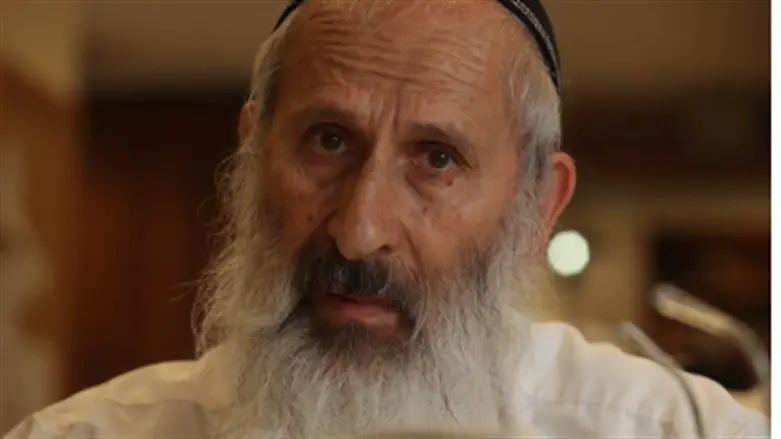
The chapters of the Book of Bamidbar deal with the education of the new Israelite Nation while on the way to the Promised Land, a clarification of our identity and mission. Many events and encounters occur during this wilderness adventure. Less highlighted are detailed mitzvot. Yet Parashat Chukat seemingly deviates from this, as it deals with ordinances that appear, at first glance, to have no connection to this stage in the life of the nation.
But this is not so. The section of Parah (the Red Heifer) and the purification from the impurity of death are part of the preparation for entering the Land of Israel. The closer we come to the Land, the more we encounter realities connected to the life of the Nation in the place Hashem has chosen for it to dwell.
In the continuation of the Torah portion, we encounter political friction with Edom regarding the right of passage through its territory. Afterwards, we encounter real military conflicts with the Canaaniteד, with Sihon, king of Heshbon, and with Og, king of Bashan on the eastern side of the Land.
The existence of a state is sometimes bound up with wars. We do not love wars, and if it were possible to do without them, we would certainly rejoice. However, we must be realistic and take into account the possibility of war, for the sake of defending the nation’s existence.
War has terrible side effects; it breaks through the moral boundaries that exist in normal life. Soldiers are permitted, when necessary, to disregard prohibitions on forbidden foods and even to eat pork (Rambam, Laws of Kings 8:1). A non-Jewish woman, who is forbidden in marriage, becomes permissible under certain conditions as with the case of the beautiful captive woman (Deuteronomy 21:10-15).
The most dreadful phenomenon of all is bloodshed: we kill others, and our own blood is also spilled. Through the war for the Land, we come into contact with death.
Encountering death causes a profound inner shock, so severe that priests are forbidden to become ritually impure through contact with the dead. It is an encounter with the absence of life - the removal of the Divine Vitality that is found in a person.
War is a foreseeable trauma for which one must prepare. For this reason, explains Rabbi Yitzchak Abarbanel, the section of the Red Heifer, teaching the ways of purification from the impurity of death.comes as a preventive measure, as a spiritual remedy for the inner trauma of the anticipated encounter with death in Israel’s wars for its Homeland.
The War Against Og
We continue our progress toward the Land of Israel, and along the way, clarifications develop that prepare us for entering the Land. These clarifications are both internal and external - within the nation itself and in relation to other nations. One of these clarifications is our military clash with Og, king of Bashan.
This is a confrontation with tremendous power, which arouses apprehension: “And the Lord said to Moses, ‘Do not fear him’” — “for Moses was afraid to fight him” (Rashi there).
The Sages describe Og’s strength in the following story (Berachot 54b):
“[Og] said: ‘How large is the camp of Israel? Three parasangs [about 12 km]. I will go and uproot a mountain three parasangs wide and throw it upon them and kill them.’ He went and uprooted a mountain three parasangs wide and placed it upon his head. The Holy One, Blessed Be He, sent ants upon it, and they bored through it, so the mountain fell around his neck. He tried to remove it, but his teeth protruded on either side, and he could not pull it off.”
This is a strange story. The Maharal explains (Netzach Yisrael, pg. 24) that the essence of Og is giant-ness (enormity). Therefore, he has a certain point of connection with Abraham our father (Niddah 61a), who is called “the great man among the giants” (Joshua 14:15). However, whereas Abraham’s greatness is spiritual greatness, Og’s greatness is physical.
This is also the contrast between Israel and the nations. Israel is small in number and called “the small Jacob” (Genesis 27:15; Gur Aryeh on Genesis p. 7b), and likened to “the worm of Jacob” (Isaiah 41:14). Opposite Israel stands the world of the nations, giant in quantity.
Israel is great in quality and spirituality, while Esau is great in quantity and materiality: “The voice is the voice of Jacob, but the hands are the hands of Esau” (Genesis 27:22).
The struggle between Og and Israel is a struggle between quantity and quality, between materialism and spirituality.
Og appears in his full, crude stature with a mighty mountain in his hand - physical power that threatens to bury the entire people of Israel.
But the tiny ants gnaw away at him. The Israelites, small as ants, succeed in breaking down his power through the force of their spiritual might. The mountain collapses onto his neck and he is choked. He tries to free himself but his teeth protrude. It is his teeth, which symbolize his spreading violence, that bring about his downfall. He is choked by his own physical might.
Thus, the small, qualitatively and spiritually powerful Israel triumphs over the quantitatively and materially enormous giant. Have we not been a witness to this over the past two weeks in the war against Iran?
One of the unique specialties (segulot) of the Jewish Nation in the Land of Israel is that all of its material assets are spiritual as well, infusing us with added power to triumph over enemies who possess the physical might of Og.
Thanks to Hashem.
(Excerpted with addition from Rav Aviner’s book “Tal Hermon” on the Torah portions. Translated by Tzvi Fishman.)